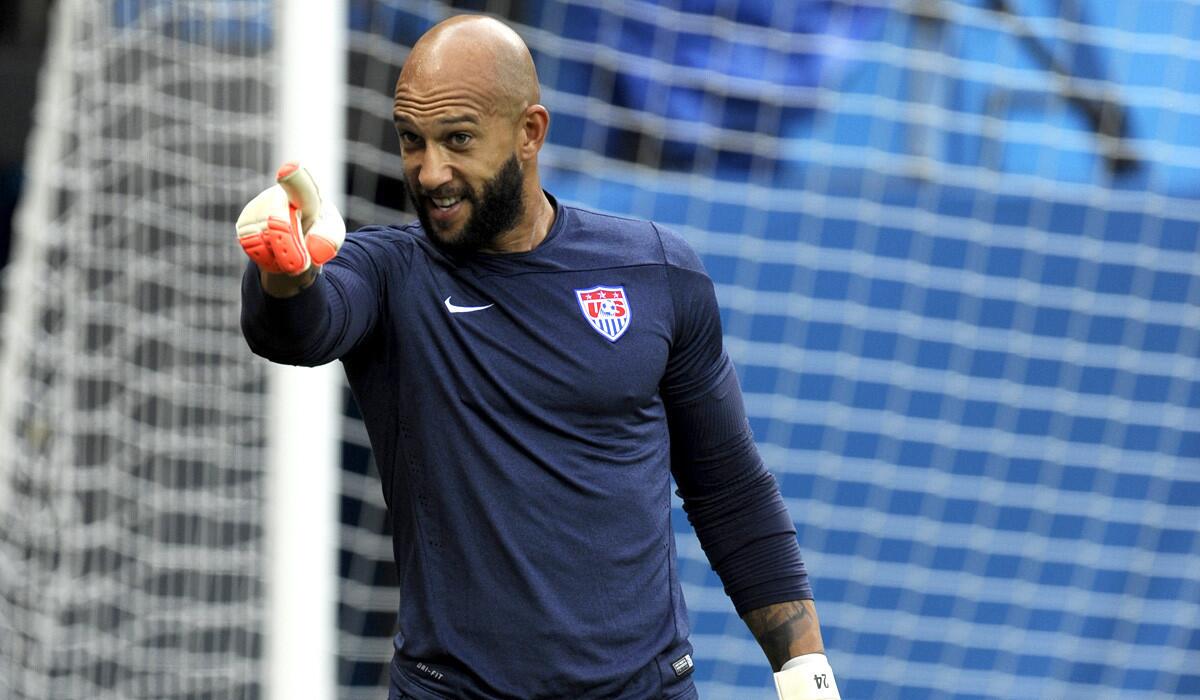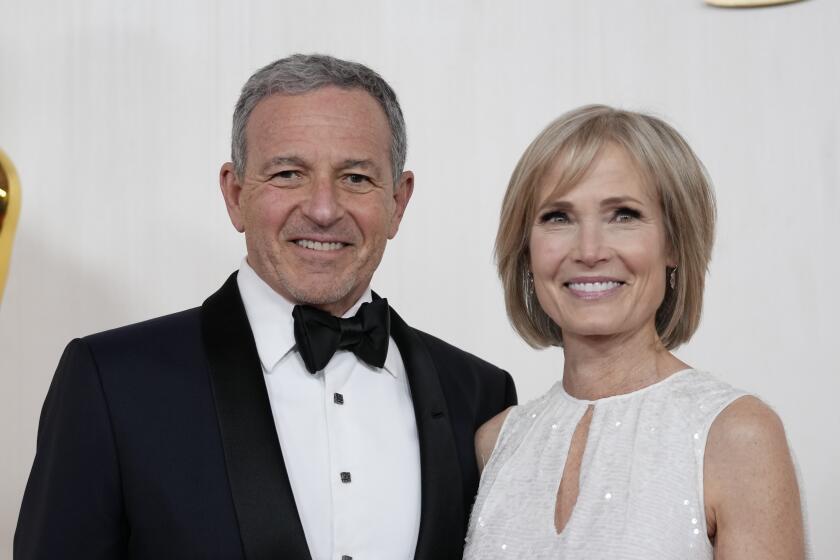At World Cup, CONCACAF sees its teams, including U.S., step up

Reporting from Sao Paulo, Brazil â Remember when CONCACAF was a quaint, unthreatening little football backwater where many of the people knew the sport as soccer â and few of them played it very well regardless of what it was called?
This World Cup has changed that perception.
CONCACAF â the governing body for soccer in North America, Central American and the Caribbean â saw three of its four teams advance out of group play in Brazil. Only South America sent a greater percentage of its teams on to the second round.
And Costa Rica, the U.S. and Mexico all played more deeply into the tournament than Spain, Italy and England, all former champions.
Mexico held powerful Brazil, the worldâs third-ranked team, scoreless. The U.S. outplayed Cristiano Ronaldo and No. 4 Portugal. And Costa Rica made it all the way to the quarterfinals, where it played the Netherlands to a scoreless draw before being knocked out on penalty kicks.
That gave the Central Americans the unique distinction of being the only team eliminated from the tournament without losing a game. But just by getting that far, Costa Rica also became the fourth team from the region to reach the final eight of a World Cup.
Only Europe and South America â which qualify nearly five times as many teams for the World Cup combined â have done better in their histories.
With that kind of success comes respect, says U.S. Coach Juergen Klinsmann, who won a World Cup with Germany in 1990, a tournament also made noteworthy by the return of the U.S. after a four-decade absence.
The Americans havenât missed a World Cup since â something England, France, Uruguay, the Netherlands, Chile, Portugal and Belgium canât say.
âThe stronger that the representation of our region is, the more respect you gain all over the world,â said Klinsmann, whose U.S. team made the round of 16 for the third time in four World Cups. âWith these results now, things are changing. People look differently to our region and say, âYou know what? Thereâs a lot happening here.â
âItâs not only the U.S. and Mexico, it is other countries as well that break in, Costa Rica has done a great job and so itâs changing. Hopefully that trend continues.â
If it does, CONCACAF deserves more automatic berths in the next World Cup.
With 41 member nations CONCACAF has long been pushing for a fourth automatic qualifying spot in the 32-team field. Currently just the top three teams in the regional qualifying tournament automatically advance to the World Cup. (Mexico also went this year after beating New Zealand in an intercontinental playoff.)
Among the six FIFA confederations, only Oceania â whose 14 member nations include the Cook Islands, Vanuatu, Papua New Guinea and Tonga â has fewer guaranteed berths in the World Cup. If that doesnât change before 2018, any CONCACAF team hoping to go to Russia would have to knock off at least one team that made the second round in Brazil.
âObviously, we love to see CONCACAF teams do well, so Iâm glad Costa Rica did well and Mexico did well,â U.S. Soccer President Sunil Gulati said. âAnd from a selfish perspective, the better CONCACAF teams do, the more likely we are to have a chance of convincing people that we should earn additional slots.
âAll those people who said CONCACAF teams have an easy ride going in, maybe, maybe not. But theyâve proven they belong here.â
The new respect CONCACAF has earned on the field follows an equally important remake off it.
Under Jack Warner, who served as CONCACAF president for 21 years, the confederation became known more for allegations of corruption involving officials than for competitive teams. When Warner resigned the presidency under fire in 2011, he was replaced by Jeffrey Webb, the U.S.-educated president of the Cayman Islands soccer federation.
Low-key and soft-spoken, Webb nonetheless has considerable clout in FIFA, where he heads an important anti-racism task force. And in addition to cleaning up CONCACAFâs executive offices, he has pushed through some necessary changes in the competition schedule, making the regional Gold Cup tournament a bi-yearly rather than a quadrennial competition.
He also played a major role in bringing the prestigious Copa America to the U.S. in 2016, when six CONCACAF teams will join a field of 10 South American countries â further raising both the profile and the quality of the regionâs teams.
FIFA has taken note of these advances â and others as well. The U.S. bought more tickets â more than 200,000 â and sent more fans to this World Cup than any country other than host Brazil. In addition, hundreds of thousands of people turned out at public viewing events for the four U.S. games and TV ratings, in both English and Spanish, have broken and re-broken records.
âWhat we see in the United States is staggering. The audience is unprecedented, more than the NBA,â FIFA Secretary General Jerome Valcke told the Brazilian newspaper Globo. âThe country has the largest level of youth soccer in the world, with 20 million young people playing.â
Added FIFA President Sepp Blatter: âThe level of interest in the USA is very highâŚ. The quality of the football is incredible.â
Isnât it about time CONCACAF is rewarded for that?









